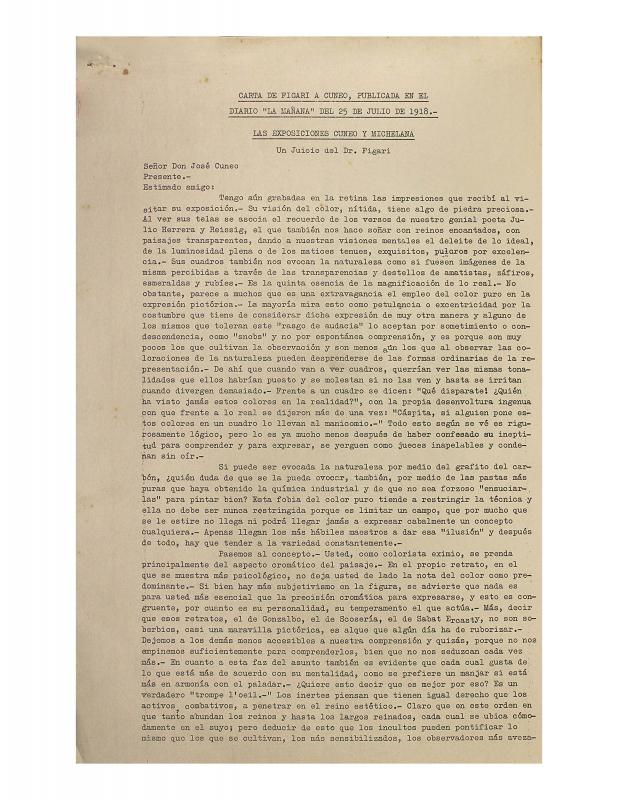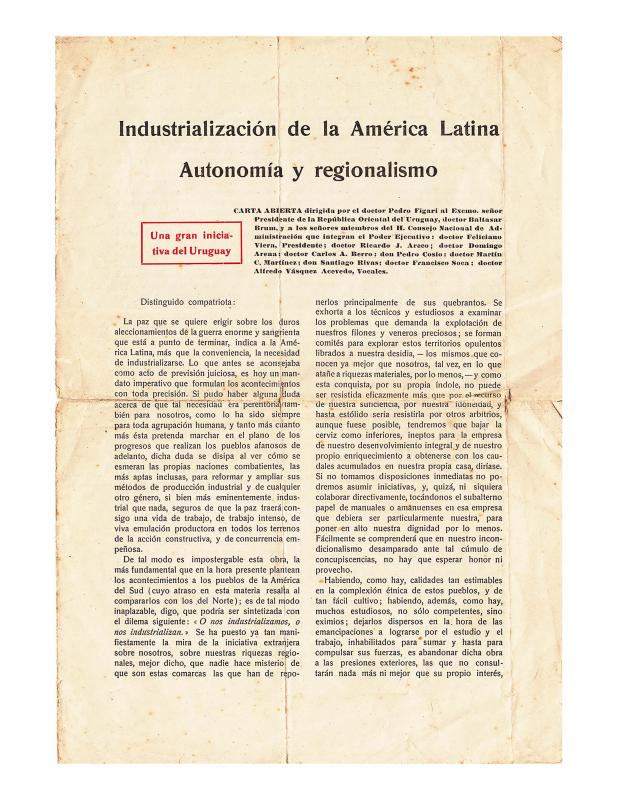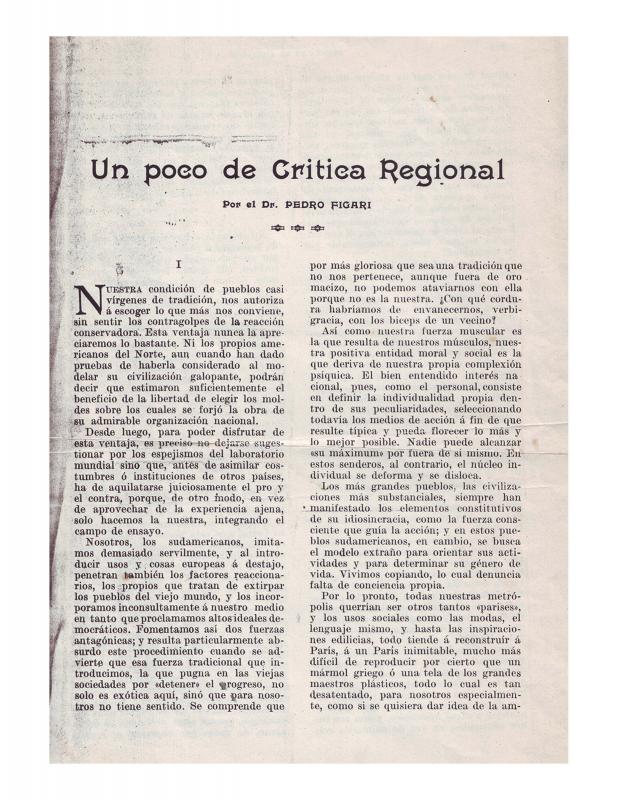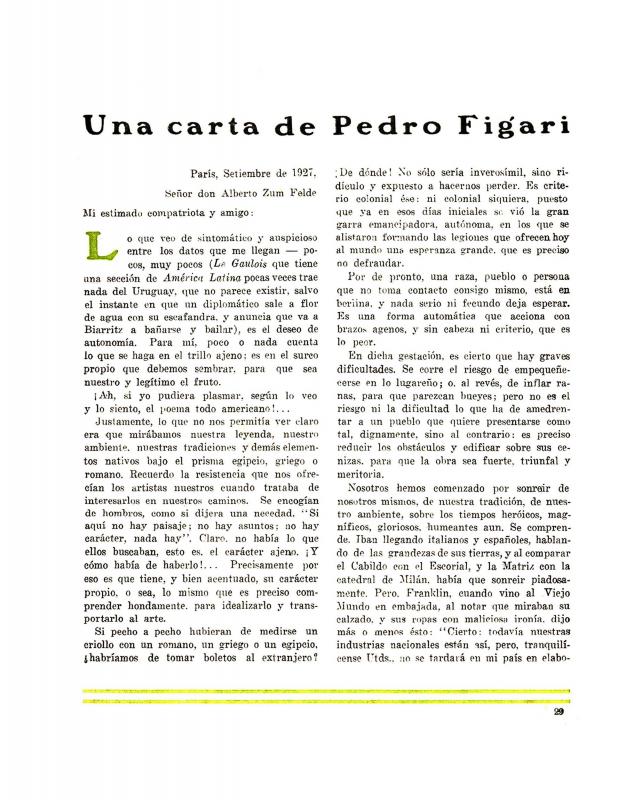Pedro Figari (1861–1938) was active on many different cultural fronts. He did work in philosophy, journalism, and education, as well as in the judicial, political, and artistic spheres. He advocated universal humanism that would include—or, indeed, be based on—empathetic knowledge of the region’s cultural heritage as manifested in its traditions, nature, and society.
In this article in La Cruz del Sur—journal of arts and ideas founded in 1924 and initially directed by writer Alberto Lasplaces (1887–1950)—Figari returns to his idea of “regional autonomy.” That concept summarizes Figari’s observation of how, dazzled by European culture, cosmopolitanism in the local and regional contexts has ignored the vital importance of its own contributions and traditions. The Uruguayan painter praises both urban and rural culture, the latter of which is particularly in need of support, especially in relation to the role of women. This vindication of local culture is shared by the group that founded the journal La Cruz del Sur. The 1920s witnessed, in Uruguay, the consolidation of democratic practices and social inclusion whose origin lay in reforms enacted by two-time president José Batlle y Ordóñez (1856–1929) during what is called the “batllista era”—a foundational moment in modern Uruguay. Debate on “the native” and “the universal” was widespread among intellectuals during a period of social and political reformulation.
[For further reading, see in the ICAA digital archive the following texts by Uruguayan polymath Pedro Figari: “Las exposiciones Cuneo y Michelena [Un juicio de Pedro Figari]” (doc. no. 1233819), “Industrialización de la América Latina, Autonomía y Regionalismo: Carta abierta dirigida por el Dr. Pedro Figari al Excmo. señor Presidente de la República Oriental del Uruguay” (doc. no. 1181222), “Un poco de crítica regional” (doc. no. 1258164), “América Autónoma: no basta instruir, hay que enseñar a trabajar” (doc. no. 795325), “Arte, técnica, crítica. Conferencia bajo el patrocinio de la Asociación Politécnica del Uruguay” (doc. no. 1263840), and “Una carta de Pedro Figari” (doc. no. 1197040)].




